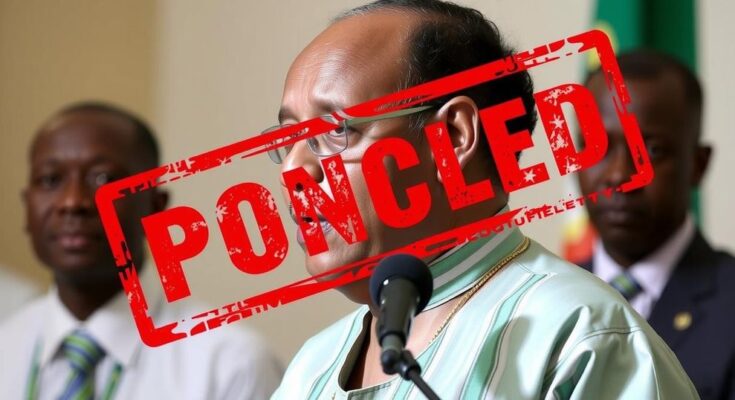Togo’s first senatorial elections are postponed to February 15 to allow political parties more preparation time. The elections are crucial for implementing a controversial new constitution, which faces boycotts from some opposition parties. Established in 2002, the Senate has not yet been formed, and the new constitution is criticized as a means for President Gnassingbé to consolidate power.
Togo’s inaugural senatorial elections have been rescheduled to February 15, as announced in a presidential decree released on Friday evening. The decision aims to provide political entities additional time to prepare for the elections, with the official campaign period commencing on January 30. This electoral event is pivotal for the realization of a new constitution, which has faced significant opposition from various political factions and civil organizations.
Several parties have advocated for this postponement to facilitate candidate registration; however, notable opposition groups, including the National Alliance for Change (ANC), have declared their intention to boycott the elections, viewing them as indicative of a “constitutional coup d’état.” The Senate, established through a constitutional amendment in 2002, has yet to be operational, and will comprise 61 members—41 of whom will be elected by local and regional councillors, while the remainder will be appointed by the Prime Minister.
The newly proposed constitution, which alters the method of electing the head of state from a direct election to a parliamentary selection, has been condemned as a maneuver for President Faure Gnassingbé to secure lasting authority. His party, UNIR, achieved an overwhelming victory in the April 2024 legislative elections, securing 108 of the 113 available seats. President Gnassingbé has been in office since 2005, succeeding his father, who presided over Togo for 38 years.
The delay in Togo’s senatorial elections is a strategic move influenced by political parties’ requests for additional time to organize. These elections are essential for the implementation of a newly revised constitution, perceived by many as a tool for President Gnassingbé to centralize power further. The opposition raises concerns over the legitimacy of these changes, prompting calls for a boycott of the impending elections, indicative of deeper political tensions in the country.
In conclusion, the postponement of Togo’s senatorial elections to February 15 reflects the political landscape’s complexities, where various parties seek more time to prepare amidst widespread criticism of a new constitution. The backdrop of these elections reveals significant opposition towards President Gnassingbé’s enduring influence and raises questions regarding the future of democratic processes in Togo.
Original Source: www.barrons.com




